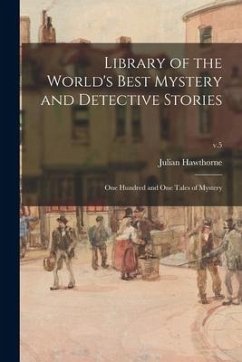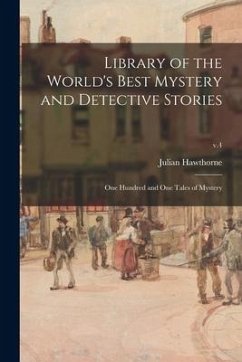
Library Of The World'S Best Literature
Ancient And Modern (Volume Xxix)
Versandkostenfrei!
Versandfertig in 1-2 Wochen
51,99 €
inkl. MwSt.
Weitere Ausgaben:

PAYBACK Punkte
26 °P sammeln!
This book has been considered by academicians and scholars of great significance and value to literature. This forms a part of the knowledge base for future generations. So that the book is never forgotten we have represented this book in a print format as the same form as it was originally first published. Hence any marks or annotations seen are left intentionally to preserve its true nature.












